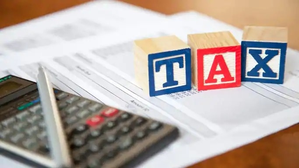Explained: Four amendments to Income Tax Act to be applicable in FY26
By IANS | Updated: August 14, 2025 15:29 IST2025-08-14T15:23:32+5:302025-08-14T15:29:58+5:30
New Delhi, Aug 14 The government has introduced four amendments to the Income Tax Act, 1961, relevant for ...

Explained: Four amendments to Income Tax Act to be applicable in FY26
New Delhi, Aug 14 The government has introduced four amendments to the Income Tax Act, 1961, relevant for FY 2025-26, but included in the Income Tax Bill, 2025, applicable for FY 2026-27, Union Finance Minister Nirmala Sitharaman has said.
The major amendment grants tax exemption on dividends, interest, and long-term capital gains to sovereign wealth funds and pension funds investing in infrastructure from April 1, 2020, to December 31, 2030, subject to notification.
The Public Investment Fund (PIF) and its wholly-owned subsidiaries will be named directly in the section for exemption.
The second major clarification involved the abatement of all assessments for block periods in search cases until there is a block assessment order. It will be a major reform for ease of doing business.
Further, the minister said that the amendment provided clarity about the standard deduction of Rs 75,000 that applies to salaried individuals under the new tax regime.
The Finance Act, 2023, introduced Section 115BAC(1A), offering new income tax slab rates for taxpayers choosing the new tax regime, but a drafting error crept in, as a clause (clause iii) was omitted from Section 115BAC(1A).
The enhanced standard deduction of Rs. 75,000 under the new tax regime then became unavailable for the financial year 2025-26 due to this omission. The latest amendment, passed by Parliament, corrected this drafting error.
The fourth amendment addressed the Unified Pension Scheme (UPS) to clear the confusion on deduction and bring parity with the National Pension System. The recent amendment aligns the UPS with the NPS for tax purposes.
NPS allowed up to 60 per cent of the accumulated corpus under the scheme to be withdrawn tax-free at the time of closure or opting out. Further partial withdrawals, up to 25 per cent of self-contributions, were also exempt from taxable income. The amendment extends these exemptions to UPS, bringing parity between both schemes.
Disclaimer: This post has been auto-published from an agency feed without any modifications to the text and has not been reviewed by an editor
Open in app